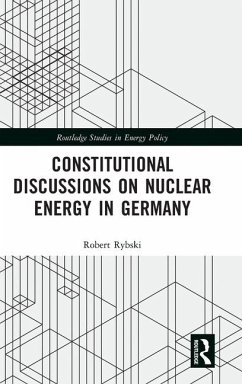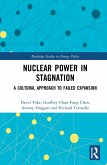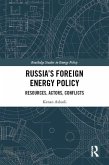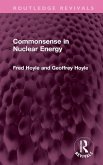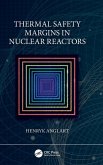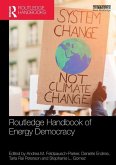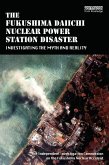This book analyses the German constitutional system's responses towards nuclear energy.
Robert Rybski begins with a presentation of energy security as a constitutional value and explores how it connects with nuclear energy. He also examines constitutional standards derived from the German Constitution, which directly regulates nuclear energy issues within the German system of power. The book presents the structure of sources of law that are binding in the area of security of nuclear installations and considers the impact that The European Atomic Energy Community had on the German constitutional system. The final part of the book is devoted to a novel judicial concept of the so-called Restrisiko - a risk that cannot be avoided - which has been developed in the jurisprudence of the Federal Constitutional Court. The essence of this concept is an assumption that as long as the legal framework regulating nuclear energy fulfils conditions formulated in that judgment, then each citizen has to accept risks resulting from the nuclear energy sector.
Covering the entire period of commercial usage of nuclear energy for power generation, this book will be of great interest to students, scholars and energy experts who are active in researching or adopting public policies related to the nuclear energy sector.
The Open Access version of this book, available at http://www.taylorfrancis.com, has been made available under a Creative Commons [Attribution-Non Commercial-No Derivatives (CC-BY-NC-ND)] 4.0 license.
Robert Rybski begins with a presentation of energy security as a constitutional value and explores how it connects with nuclear energy. He also examines constitutional standards derived from the German Constitution, which directly regulates nuclear energy issues within the German system of power. The book presents the structure of sources of law that are binding in the area of security of nuclear installations and considers the impact that The European Atomic Energy Community had on the German constitutional system. The final part of the book is devoted to a novel judicial concept of the so-called Restrisiko - a risk that cannot be avoided - which has been developed in the jurisprudence of the Federal Constitutional Court. The essence of this concept is an assumption that as long as the legal framework regulating nuclear energy fulfils conditions formulated in that judgment, then each citizen has to accept risks resulting from the nuclear energy sector.
Covering the entire period of commercial usage of nuclear energy for power generation, this book will be of great interest to students, scholars and energy experts who are active in researching or adopting public policies related to the nuclear energy sector.
The Open Access version of this book, available at http://www.taylorfrancis.com, has been made available under a Creative Commons [Attribution-Non Commercial-No Derivatives (CC-BY-NC-ND)] 4.0 license.

